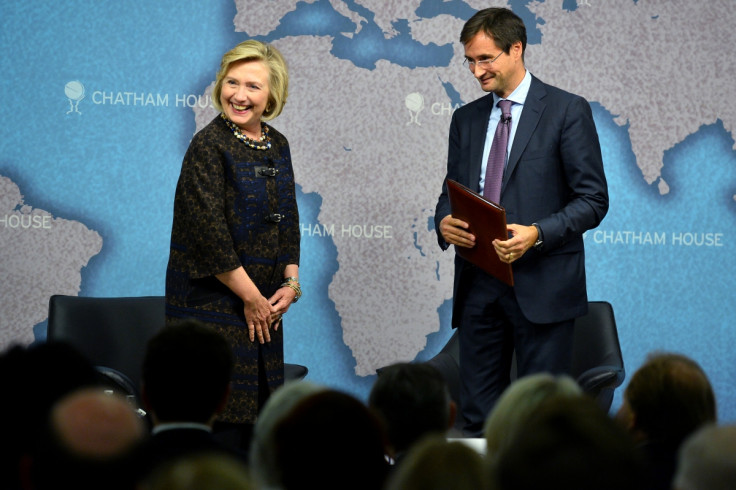Europe and UK "Need" Immigration to Tackle Ageing Population

The EU and UK "need" immigration to tackle the "millstone" problem of an ageing population, according to a leading expert in international relations.
Dr Robin Niblett, the director of agenda-setting think-tank Chatham House, said that significant net migration is necessary to keep worker-dependency ratios across the EU at their 2020 levels.
Europe, the UK included, faces the "profound structural challenge" of almost half its population (48.5%) being aged 50 or over by 2050, according to Eurostat.
In order to keep the workforce at its 2010 level, total Europe-wide immigration of 25 million is required by 2020.
Niblett said strong governance was required in order to plan for this requirement amid strong anti-European sentiment across the European electorate.
BBC statistics show that "malcontents" now make up 31.5% of the European Parliament, many of which were elected on strong anti-immigration tickets.
"Are these [the election results] a watershed? Is Ukip another flash in the pan or the beginning of a cultural shift? There is fragmentation at both ends of the political spectrum that needs watching," Niblett said, adding that hostility to immigration is one of the biggest challenges facing European economies.
A survey from think-tank Pew Global this year showed that 55% of UK citizens want fewer immigrants entering the country, with just 6% saying more immigration should take place.
Spain absorbed four million immigrants between 2000 and 2005, which Niblett said "saved it from bankruptcy".
Many of the immigrants were from Latin America, sharing language, culture and religion with the Spanish people. This, said Niblett, made it easier for them to integrate and for native Spaniards to accept them.
It's already been speculated that the recent European elections will lead to an overhaul of economic strategy across the continent.
Support in the European Parliament for the proposed Transatlantic Trade and Investment Partnership (TTIP), a wide-reaching free trade agreement involving the EU and US, is expected to be diluted following the success of populist parties across Europe.
IBTimes UK contacted Ukip, which holds a majority in the European Parliament among British parties, to find out its policy regarding TTIP.
In an emailed response, trade spokesperson William Dartmouth, the MEP for South West England and Gibraltar, wrote: "In principle UKIP supports free and open trade. However re TTIP we have yet to see the TTIP documents or indeed much of anything pertinent; until that happens we are not able to commit to supporting TTIP."
Those on the left, such as Syriza in Greece, the Five Star Movement in Italy and the Plural Left in Spain, all of which made big gains in May's election, are expected to be more ideologically opposed to TTIP.
"The real issue when it comes to ratification of the agreement is how the members of the Socialist Group in the European Parliament are going to behave. While the European People's Party [EPP – the largest European Parliament grouping ] parties have been largely pro-TTIP, the Socialists have been a bit more divided and equivocal," Dr Gabriel Siles-Brügge at the University of Manchester tells IBTimes UK.
Leaders initially hoped to ratify TTIP by the end of this year, but political bickering and widespread public opposition have made this unlikely.
French President Francois Hollande has written Barack Obama to discourage the US from slapping a $10bn fine on French bank BNP Paribas as punishment for breaching US trade sanctions.
The finance minister Michel Sapin later told French newspaper Le Monde: "We must all completely respect the independence of the justice system. But we are also partners with a relationship of trust, and that trust must not be broken. This could affect the ongoing talks on the free trade treaty."
© Copyright IBTimes 2024. All rights reserved.






